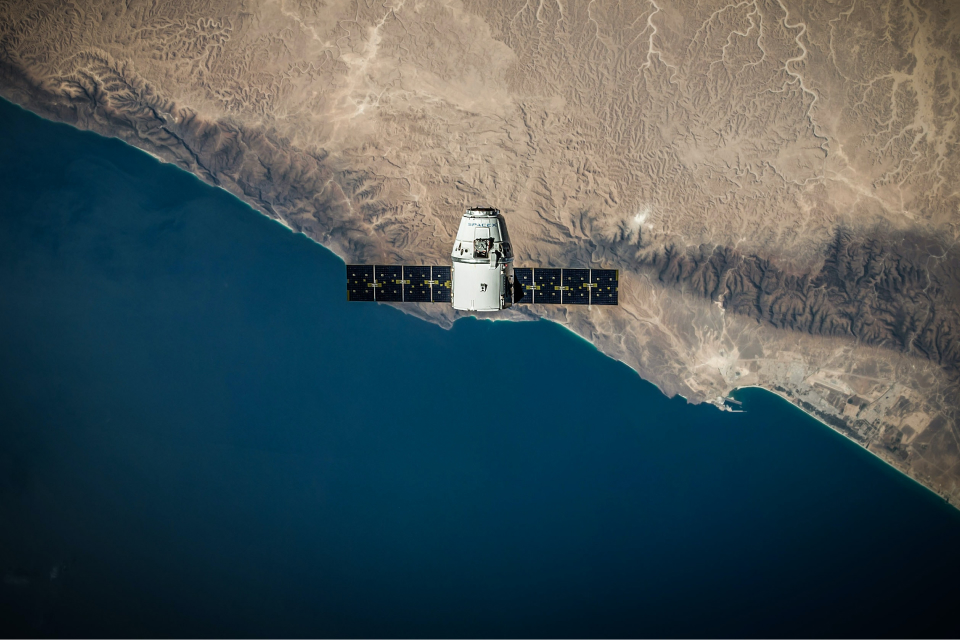Ikigai Law advised Pixxel Space, an Indian space-tech startup, in contract negotiations for its satellite launches aboard PSLV and reusable SpaceX Falcon-9 space crafts.
Pixxel is building a constellation of earth imaging satellites to provide real-time remote sensing data across the world. Its satellites provide highly accurate data-based insights in agriculture, climate change and forestry. The PSLV launch was called a “first of its kind” mission by the ISRO Chairperson being the first private remote sensing satellites launched from India.
The Falcon-9 launch was also touted to be the first transporter mission offering access to two orbits within one rideshare mission. For this mission, we advised on an agreement with Silicon Valley-based in-space satellite transportation company Momentus Inc, to launch Pixxel’s satellite into space. The launch took place on top of a SpaceX Falcon-9 to the Sun-synchronous orbit.
Momentus has built the in-space equivalent of the connecting flight. A reusable SpaceX Falcon-9 carries a Momentus spacecraft and other payloads to a common orbit. Here the Momentus spacecraft (that is carrying multiple satellites like Pixxel’s) departs to custom destinations in space to deploy the satellites. This makes the Momentus launch unique.
Darpan Singhi, Associate and Anirudh Rastogi, Managing Partner at Ikigai Law advised on both contracts. The team had previously advised Team Indus on their launch contract with ISRO to launch a lunar lander and robotic rover on board a Polar Satellite Launch Vehicle (PSLV) operated by the ISRO. This launch contract was later terminated. The contract for Team Indus’ launch on the PSLV was for a dedicated mission (meaning that the entire launch vehicle was leased for the mission), whereas the launches for Pixxel were shared missions, where the client’s payload is secondary to another payload. “Now, a secondary payload implies that there are other customers of the launch provider whose mission is in a way dependent on yours. For instance, if you fail to provide your payload on time and cannot be installed in time for the launch, then the launch may still take place but with a dummy payload that replicates your payload’s mass profile. Or there could be a snag in your payload that causes an accident mid-flight. Thus, launch contracts can differ vastly basis the nature of the launch,” explains Rastogi. In all launch contracts, however, one common theme for negotiation will be what constitutes a launch, and therefore what constitutes its failure, and who bears liability. Would failure include inability to lift-off, or also inability to inject it into orbit subject to agreed deviations? What if the payload is exposed to shock or mechanical, acoustic, electromechanical loads more severe than what it is built to withstand, impacting its commercial life or performance. On such aspects of liability, the Momentus-SpaceX launch is very different because here the payload is launched on one vehicle and then a transfer vehicle departs mid-way to carry it to its orbit. Technically there are two launch providers, except you don’t have privity of contract with one.
Ikigai Law’s space and aviation practice
Ikigai Law’s aerospace, defence and aviation practices are ranked by Legal500, that calls the team ‘influential, effective and knowledgeable.’ It further says“A significant aspect of the practice involves advising on new fields of regulation, often resulting in precedent-setting policy developments.” The firm recently advised satellite-data analytics firm Blue Sky Analytics in its corporate structuring and funding round. It has also advised model rocketeering company Specific Impulse, that develops scaled-down (working) rockets for skilling purposes, on licensing of its propulsion material. The firm also represents the Drone Federation of India and several of India’s leading drones companies, and was named a ‘pioneer’ by the Economic Times for its contribution to the drones policy.










